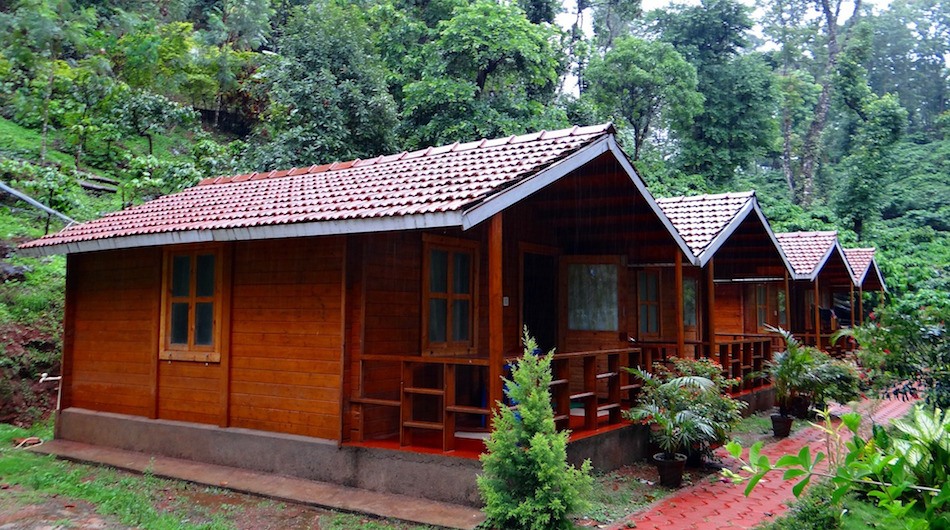
A homestay in a coffee estate in Coorg, India. Photo credit: Pixabay.
From hotels, homestays, and peer-to-peer rentals a la Airbnb to guest houses, jungle lodges, and boat houses: Stayzilla wanted to serve the diverse needs of a traveler in a vast country like India. It had 55,000 stay options in close to 1,000 towns across the country, and billed itself as India’s largest homestay network. Recently, though, it appears something is amiss.
Today, when we searched for accommodation on popular destinations Dharamshala, Shimla, Kannur, Mumbai, Bangalore, Darjeeling, and Ooty, it produced a list of “sold out” properties for any date in March and beyond. (You could still make bookings in February.) We tried 10 different dates and toggled criteria – popularity, high-to-low ratings, and low-to-high pricing. All listed properties and their rooms had a standard “sold out” tag.

When we searched for accommodation on popular destinations Dharamshala, Shimla, Kannur, Mumbai, Bangalore, Darjeeling, and Ooty, it produced a list of “sold out” properties for any date in March and beyond.
Stayzilla’s Facebook page, which had daily entries on cool getaways, shows no posts from February 16 on. Its Twitter account is no longer public. The last tweet was sent out on February 14.
An email sent to Stayzilla CEO and co-founder Yogendra Vasupal in the morning went unanswered. But he sent a response as soon as this story appeared in Tech in Asia. “I would like to announce today that we would be bringing to a halt the operations of Stayzilla in its current form, and looking to reboot it with a different business model. This has been one of the toughest decisions that I have taken so far but it is the right thing to do,” Yogendra said.
See: Why Stayzilla backed by Matrix and Nexus shut down. A founder’s rare admission
Last evening, a call to a senior employee in Stayzilla produced the following response: “I can’t comment on this. You will get to know down the line.” Today we asked another employee to confirm that he had just lost his job, but he abruptly ended the call, after saying: “I am no longer with Stayzilla. I can’t talk right now.” A third employee, when contacted, confirmed he had lost his job yesterday but declined to say any more.
We also got in touch with a Stayzilla homestay owner and he said the company had not communicated an operations shutdown. “The site is in a mess,” he said, on looking up his property as a host and being unable to load his inventory for March. When he looked up the property as a customer, he found a “sold out” tag although rooms are available in March. He then called up his Stayzilla contact person, and discovered he had resigned. The homestay owner did not want to be identified.
See: 25 failed startups in India in 2016 and what you can learn from them
Thin margins, cash burn
The budget accommodation sector as a whole has been bleeding. The highest funded of them, Oyo, had losses of US$52.5 million and a revenue of merely US$2 million in the financial year ending in March 2016, according to a Mint compilation of filings made with India’s registrar of companies (RoC). Inasra Technologies, which runs Stayzilla, took a relatively modest hit of US$14 million in the same period with a revenue of US$2 million (the same as Oyo’s).
The difference is that SoftBank-backed Oyo has more cash to burn, with US$188 million in funding. Stayzilla’s funding is less than a fifth of Oyo’s.
Stayzilla was founded by Yogendra Vasupal with his wife Rupal Yogendra and his friend Sachit Singhi in 2010. They were avid travelers and their passion showed in the curation of exotic homestays on Stayzilla.

Stayzilla was founded by Yogendra Vasupal with his wife Rupal Yogendra and his friend Sachit Singhi in 2010. They were avid travelers and their passion showed in the curation of exotic homestays on Stayzilla. Photo credit: Stayzilla.
It initially got US$500,000 from the Indian Angel Network, followed by a series A round of an undisclosed amount in 2013. Two years ago, in the boom time of 2015, it raised US$20 million and US$13 million in series B and C rounds from Matrix Partners and Nexus Ventures. We reached out to Matrix and Nexus, but they didn’t respond.
Stayzilla has been in the market for funding in the past few months, but the gravy days are gone as a funding squeeze has been on from last year. It appears the runway is over, but we will wait to hear from the founder and investors on this.
Budget accommodation for a large market like India looks good on paper, but it works on wafer-thin margins. Small hotels and homestays run on a shoestring budget, and it’s hard to get substantial commissions out of them. Customer acquisition costs are high in a competitive environment. Put the two together, and you have a business model that only runs as long as there’s VC money to fuel it.
See: Startups are nailing their own coffins with VC hammers. Here’s a way to escape that fate
Matters only got worse for Stayzilla with the entry into India of the cash-rich and popular unicorn Airbnb, which became profitable last year. Stayzilla still had a niche in the alternative accommodation space, but its large network spread around the country could not have been sustained without more funding.
By now, this is a familiar story in India’s consumer internet space. Just yesterday, one of India’s biggest ecommerce sites started shrinking its operations and laying off hundreds of employees, amidst a funding squeeze.
This article was updated to include the founder’s comments.
This post It gets worse: India’s largest homestay startup Stayzilla shuts down appeared first on Tech in Asia.